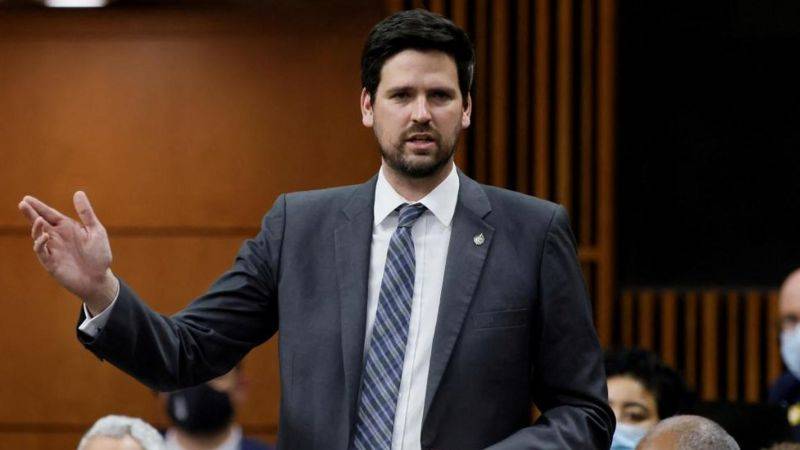
Canadians debate foreign student limit over housing problem
To combat the country’s soaring housing prices, Canadian Housing Minister Sean Fraser has proposed a restriction on the number of foreign students allowed into the country. It was “one of the possibilities that we should think about,” he added. His comments come as Canadian Prime Minister Justin Trudeau comes under fire for his handling of the country’s housing problem. Universities and the province of Quebec quickly reacted negatively to Mr. Fraser’s comments, saying they would oppose any moves to restrict the number of overseas students studying in their jurisdictions.
More over 800,000 foreign students enrolled in Canadian universities in 2022, a 75% rise from only five years before. Minister of Immigration Marc Miller responded to Mr. Fraser’s comments by saying Canada will review its immigration objectives to see whether or not it eases the housing shortage. Canada has pledged to admit 1.5 million more immigrants by 2025. But how they plan to do so in the face of a lack of housing is raising serious concerns.
How terrible is Canada's housing market?
Many people in Canada have ongoing problems coming up with the money to cover their monthly housing costs. As of the month of August, the average price of a house in Canada was close to C$750,000 ($550,000; £435,000). That is an increase of 360% from the average of C$163,000 in 2000. In major urban centres like Toronto, where a household income of six figures is required to own a home, this problem is significant. In cities like Toronto and Vancouver, it’s not uncommon for home prices to exceed C$1 million.
The Dermographia International Housing Affordability Index consistently ranks both of these cities, along with others like Hong Kong and San Francisco, as two of the world’s ten most expensive places to live. The cost of renting a home or flat is likewise rising in Canada’s largest cities. A one-bedroom flat in Toronto now costs an average of C$2,500 per month, a 25% rise from the previous year.
Canada’s smaller communities have seen the effects of the housing crisis in recent years. It’s been going on for years, and politicians at all levels have pledged to do something about it for years. There is a scarcity of dwellings because immigration is fueling a population boom. This is further outpacing the construction of new homes. Canada’s national housing agency estimates that the country would need to construct 5.8 million new dwellings, including 2 million rental units, by 2030 to address the issue.
Will limiting foreign students help?
The government has implemented a variety of responses in recent years. One such measure, implemented in January, bans foreign ownership of property in an effort to lessen market competition. Professor of public policy and founder of a housing think tank Paul Kershaw said that although foreign ownership and population growth contribute to Canada’s housing woes, they should not be singled out as the main culprits.
“They are easy targets because it lets the rest of us and Canada think we’re not entangled in this issue, and we are,” he said. Prof. Kershaw said that growing property prices are beneficial to present homeowners. Further contributing to a discriminatory society between those who own and rent. Statistics Canada projects that by 2020, the real estate market will account for 13% of Canada’s total GDP, more than any other sector of the economy.
For those with the means, this industry represents a significant contributor to economic development and a potentially profitable investment opportunity. As Prof. Kershaw put it, “homes first and investment second” is the only way for Canadians to see real estate.
It’s no news that there are difficulties in locating cheap off-campus accommodation for overseas students like Amin Kamaleddinezabadi. The Iranian man, 30, who has recently earned his doctorate in biomedical engineering from the University of Toronto, told the BBC that landlords often need him to pay rent for a whole year in advance, even though they don’t have a credit history in the country.
He claimed that the cost of renting a place to live has only gone up since he started college in 2016. “Most foreign students rely on their own funding, and with the higher tuition fees they pay, it can be a really big burden for them financially,” Mr. Kamaleddinezabadi said. Despite these difficulties, he has found many positive aspects of his current life in Toronto.
There might be unintended consequences if Canada drastically reduces its intake of overseas students, he said. He said that international students who study in Canada become integral members of society. They contribute significantly to the country’s long-term economic success. Because of Canada’s long history with housing shortages, the government should give them preference in any immigration programme without discriminating against them.
Universities Canada, an organisation that speaks for hundreds of colleges and institutions in the country, issued a statement in which it expressed “deeply concerning” about the idea of linking foreign students to the housing situation. Professor Kershaw said that the government must take a multifaceted response to the housing crisis. The importance of real estate to Canada’s economy and the related issues of housing affordability and availability must be addressed.



